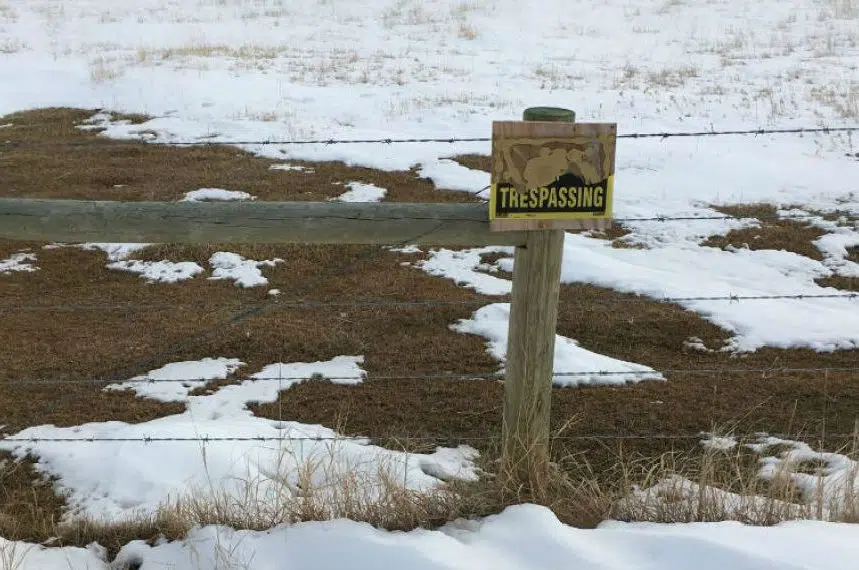As the provincial government moves to pass legislation governing how people can enter a rural property, the Federation of Sovereign Indigenous Nations (FSIN) is skeptical about the legality of the potential new law.
The proposed law would require anyone entering a rural property to first get permission from the owner. This would be a change from the current system where people are assumed to be allowed to enter unless the land has signage saying they can’t.
FSIN Fourth Vice-Chief Heather Bear said if the law passes, the federation will likely challenge it in court on the grounds that it infringes on the treaty rights of First Nations hunters, fishers and gatherers.
“The big question is, can the province pass legislation that undermines the constitutionally protected right to hunt? And that includes fish, trap and gather,” Bear said.
Bear said the law would violate section 35 of the Canadian constitution.
Part one of that section states, “The existing aboriginal and treaty rights of the aboriginal peoples of Canada are hereby recognized and affirmed.”
“Our treaty rights do not end at the border of our First Nations,” Bear said.
Bear said treaty agreements signed in the 1800s came with an understanding that First Nations could “hunt, fish and gather like we have always done.”
Looking beyond discussions of treaty rights and legalities, the vice-chief said she thinks it’s important to remember that farmers and First Nations in Saskatchewan already have good relationships.
“Not everyone is against First Nations hunting on their land,” she said. “If you don’t want someone on your land, put up a sign and mark it.”
She also alluded to a lack of a timely response from the province when trying to contact Justice Minister Don Morgan to share her concerns, but noted the two would meet Friday morning.
That time lag in response didn’t sit well with the province’s opposition NDP.
NDP leader Ryan Meili said, given the recent racial tension in Saskatchewan since the Gerald Stanley trial, it’s even more crucial Indigenous people are considered when drafting laws.
“There’s a real fracture in that relationship and that’s a very dangerous thing for this province; we need to be building that relationship with Indigenous leadership and provincial leadership,” he explained.











